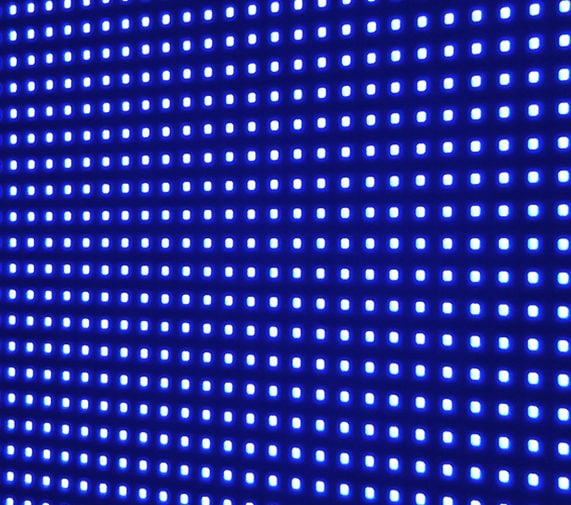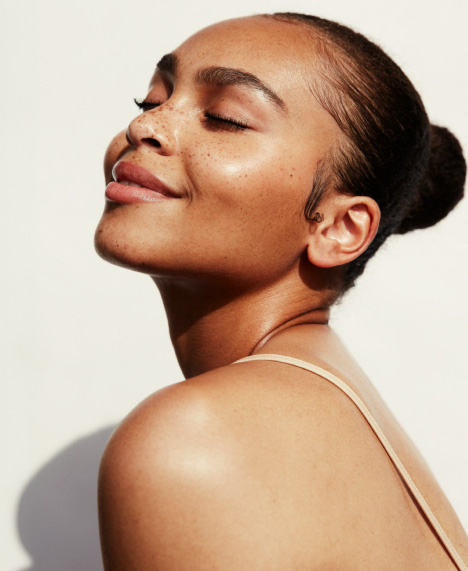The color blue is often associated with serenity and positivity—think clear, blue skies and a sparkling, blue sea. There’s also some not-so-good blue news: With the growth of technology and the use of cell phones, tablets, and computers, blue light, especially at night, can have a negative effect on sleep, vision, and skin.
According to a 2018 Pew Research Center report, 95% of Americans now own a cellphone of some kind. Of that number, 77% own smartphones; nearly 75% own computers and laptops; 50% own tablets; and about 20% own a reading device. Research compiled by Nielsen in the first quarter of 2018 reveals that adults spend 11 hours a day consuming media on these devices.
What Is Blue Light and Why Is It Harmful?
In its natural form, blue light comes from the sun and is used to regulate the body’s natural 24-hour sleep and wake cycle, known as the circadian rhythm. It helps boost alertness, elevate moods and generally makes people feel better. Blue light is also helpful in treating Seasonal Affective Disorder (SAD) and certain skin conditions. Artificial light emitted from the fluorescent light, LED light, flat screen TVs and tech devices are shorter High Energy Visible (HEV) wavelengths—and that is where the problems start.
A Harvard University study reveals that blue light suppresses melatonin more powerfully than regular light and affects the sleep cycle because our bodies don’t know it is time to sleep, thereby throwing off the circadian rhythm. Researchers suggest turning off all devices two to three hours before bed; using a dim red night light which has “the least power to shift circadian rhythm and suppress melatonin;” and to get exposure to bright light during the day to help sleep better at night.
Blue light can also affect your eyes. It’s no secret that looking at a screen for a length of time causes eyestrain and dry eyes, but according to optical chemistry research at the University of Toledo, “Blue light from digital devices and the sun transforms vital molecules in the eye’s retina into cell killers … which may lead to age-related macular degeneration, a leading cause of blindness in the United States.” In order to protect the eyes, the researchers state it is important to wear UV-protective sunglasses outside and to avoid looking at cell phones in the dark.
There also could be ramifications to your skin from too much blue light. According to a study by Estee Lauder, the disruption of the circadian rhythm at night has a direct effect on skin cells. In an interview with Harpers Bazaar, Dr. Nadine Pernodet, Estée Lauder Companies’ scientific spokesperson, explained the findings of the company’s testing: “Results indicate that exposure to blue light at night can throw skin’s natural circadian rhythm ‘out-of-sync,’ causing skin cells to continue to ‘think’ it is daytime, impacting their natural nighttime repair process, which can lead to visible signs of aging and even dark under-eye circles.”
Skincare companies are now developing new products to combat the effects of HEV blue light. Refinery 29 made a handy roundup list of skin products that can help.
There’s no magic pill that will protect you from the negative effects of blue light, but fortunately, the fix is simple. If you have an iPhone, shift to the nighttime mode. Otherwise, dim the screen or cover the screen with a blue filter or blue filter app. Learn how to calibrate your monitor and how to use a blue light filter on a PC or Mac. Book your complimentary consultation now, to help reverse the signs of aging with Forever Young BBL.
Hopefully, these tips will help you get rid of the “blues.”
twistup
Love OrangeTwist?
Join our twistup membership and receive a $100 gift card today!




